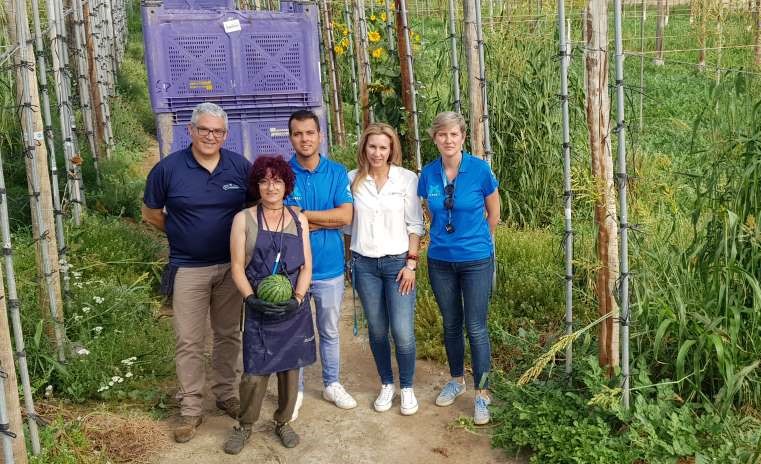Biodiversity is key to produce watermelons without pesticides – an example from an organic farm
A sunny day in March is the one chosen for cutting off the Gatinho watermelons (mini striped) that Esther Molina has cultivated on her organic greenhouse farm in Los Grillos without the use of insecticides thanks to conservation biological control. Esther is one of the farmers of the Spanish greenhouse hub of the Horizon 2020 project IPMWORKS led by the hub coach Eduardo Crisol Martínez.
At sight, between bands and aisles, scattered throughout the greenhouse, all kinds of reservoir plants (marigold, immortelle, lobularia, nettle, fennel, sunflower, coriander, among others and of course, cereal bankers) are present. These reservoir plants are not decorative, but fully functional.
Last year was a difficult watermelon and melon season due to adverse weather, abundant rainfall, dark days and haze, so aphids have become a big issue for many farmers. However, Esther has been able to dominate this enemy of cucurbits thanks to the practice of conservation biological control. Conservation biological control is a pest management strategy that supports natural enemies of pests present in the agroecosystem and promotes their effectiveness as predators, parasitoids or pathogens. These natural enemies then regulate the spreading of pests on the farm.
“All I do is taking care of biodiversity. The reservoir plants have been in place since last June, and from my own experience it is the most effective tool. They conserve the environment but also your beneficial insects, which keep the aphids at bay. ” Esther says. She has also been calm despite the bad weather this year. “I have suffered less because I have a great biodiversity, and thanks to bees, bumblebees, but also hoverflies, lacewings and other insects, pollination has neither slowed down nor stopped,” she assures.

